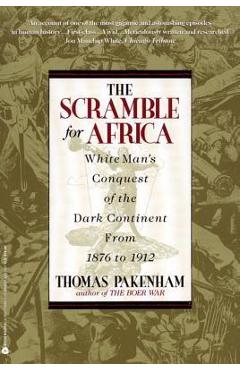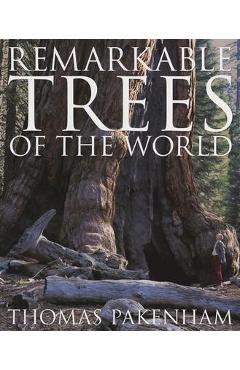Scramble for Africa... - Thomas Pakenham

Detalii Scramble for Africa... - Thomas
libris.ro
139.45 Lei
154.94 Lei
History
Thomas Pakenham
Scramble for Africa... - Thomas - Disponibil la libris.ro
Pe YEO găsești Scramble for Africa... - Thomas de la Thomas Pakenham, în categoria History.
Indiferent de nevoile tale, Scramble for Africa... - Thomas Pakenham din categoria History îți poate aduce un echilibru perfect între calitate și preț, cu avantaje practice și moderne.
Preț: 139.45 Lei
Caracteristicile produsului Scramble for Africa... - Thomas
- Brand: Thomas Pakenham
- Categoria: History
- Magazin: libris.ro
- Ultima actualizare: 28-10-2025 01:22:05
Comandă Scramble for Africa... - Thomas Online, Simplu și Rapid
Prin intermediul platformei YEO, poți comanda Scramble for Africa... - Thomas de la libris.ro rapid și în siguranță. Bucură-te de o experiență de cumpărături online optimizată și descoperă cele mai bune oferte actualizate constant.
Descriere magazin:
In 1880, Africa was largely unexplored by Europeans. Less than thirty years later, only Liberia and Ethiopia remained unconquered by them. The rest of the continent -- 10 million square miles of land and 110 million people -- had been divided up between five European powers and one extraordinary individual. The Scramble for Africa is the first full-scale study of that extraordinary period in history, the repercussions of which affect Africa to this day. Missionaries, adventurers, politicians, and entrepreneurs all wanted something from Africa. From Stanley to Livingstone, and from King Leopold II to General Charles Gordon, Thomas Pakenham examines the people who conquered, and in many cases, exploited Africa, and the ideals that drove them. Thomas Pakenham is the author of The Mountains of Rasselas, The Year of Liberty and The Boer War. He divides his time between a terraced house In North Kensington, London and a crumbling castle in Ireland. He is married to the writer Valerie Pakenham and they have four children. A phenomenal achievement ... Clear, authoritative, and compelling ... Highly recommended. -- Los Angeles Times Book Review White Man\'s Conquest of the Dark Continent from 1876 to 1912 White Man\'s Conquest of the Dark Continent from 1876 to 1912 White Man\'s Conquest of the Dark Continent from 1876 to 1912 White Man\'s Conquest of the Dark Continent from 1876 to 1912 White Man\'s Conquest of the Dark Continent from 1876 to 1912 White Man\'s Conquest of the Dark Continent from 1876 to 1912 White Man\'s Conquest of the Dark Continent from 1876 to 1912 White Man\'s Conquest of the Dark Continent from 1876 to 1912 White Man\'s Conquest of the Dark Continent from 1876 to 1912 White Man\'s Conquest of the Dark Continent from 1876 to 1912 White Man\'s Conquest of the Dark Continent from 1876 to 1912 White Man\'s Conquest of the Dark Continent from 1876 to 1912 White Man\'s Conquest of the Dark Continent from 1876 to 1912 White Man\'s Conquest of the Dark Continent from 1876 to 1912 White Man\'s Conquest of the Dark Continent from 1876 to 1912 White Man\'s Conquest of the Dark Continent from 1876 to 1912 White Man\'s Conquest of the Dark Continent from 1876 to 1912 White Man\'s Conquest of the Dark Continent from 1876 to 1912 White Man\'s Conquest of the Dark Continent from 1876 to 1912 White Man\'s Conquest of the Dark Continent

Produse asemănătoare

The Scramble for Europe: Young Africa on Its Way to the Old Continent, Paperback/Stephen Smith
![]() elefant.ro
elefant.ro
Actualizat in 28/10/2025
115.99 Lei

American Imperialist. Cruelty and Consequence in the Scramble for Africa, Hardback/Arwen P. Mohun
![]() elefant.ro
elefant.ro
Actualizat in 27/10/2025
180.99 Lei



